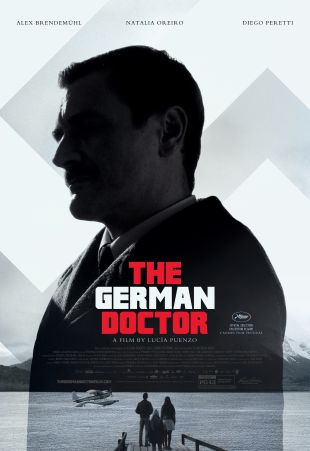
Lucía Puenzo's riveting and morally complex historical drama, which is based on her own novel, begins in 1960 with a close-knit Argentinean family meeting a seemingly kind German doctor (Alex Brendemühl) on an isolated stretch of road. The family are headed to the Patagonian town of Bariloche to run a lakeside hotel where the German-speaking mom once lived. It just so happens that the newly arrived doctor is looking for a place to stay, so the family welcome him into their lodge as a paying guest. Little do they know that they are now harboring one of the world's most notorious war criminals, the pure-race-obsessed Nazi physician Josef Mengele.
The observant doctor immediately becomes fixated on the family's underdeveloped 12-year-old daughter Lilith (Florencia Bado), who is continually taunted for her diminutive stature by her tall, blond classmates at her mom's old Nazi-supported school. Mengele, whose presence is an open secret among the locals, tells Lilith's easily swayed mother Eva (Natalia Oreiro) that he believes he can help her grow with hormone injections, but only if he is able to start experimenting on her before it's too late. She grants him permission, but keeps it a secret from Enzo (Diego Peretti), her artistic-minded and not-so-trusting husband. Mengele soon turns his attention to Eva after he learns that she is pregnant with twins. Enzo warns her that their guest is only a boarder and not their family physician, but the ingratiating doctor soothes his escalating unease by investing in Enzo's passion for crafting exquisite porcelain dolls. Mengele bankrolls a small factory that will mass-produce the figures, and the sight of row after row of unblemished dolls is an eerie and effective, if not-so-subtle, metaphor for his obsession with creating a pure master race. Tension mounts when a local photographer (Elena Roger) spies Mengele and sets out to prove that the genial doctor is actually Nazi Germany's notorious Angel of Death, who is being actively hunted by the Mossad.
Brendemühl is nothing less than magnificent in the title role. He plays Mengele not as evil incarnate, but rather as a calculating, manipulative man who carries out his ideological work without a conscience. His cool, emotionless demeanor makes him all the more menacing. Equally good are the strong supporting cast, particularly the expressive Bado. Her sensitive portrayal makes us especially protective of Lilith, who returns Mengele's attention with misguided affection of her own.
Puenzo certainly paints Mengele as a monster, but she is also careful to point out that he isn't the only one: Many Argentineans were complicit in his evildoing. Even Eva and Enzo -- good, honest, hardworking people -- give in to the allure of physical perfection, and are willing, at least for a time, to look the other way to achieve it. The film works well as a high-tension thriller, but it is much more than that. Yes, we care whether Mengele will be caught before he is able to follow through with his eugenics experiments on Eva and her babies, and we wonder who will survive this nail-biting tale. But long after the movie is over, what sticks with us is the chilling notion that Mengele's ideals of physical perfection are with us still. So-called physical and mental blemishes and defects, along with radical individualism, are not to be tolerated. Cookie-cutter idealism is increasingly encouraged. Puenzo seems to be saying that the monster she's depicting is the same one we see in the mirror.
